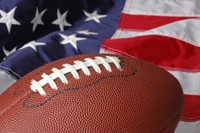Last week, the New York-New Jersey communities welcomed thousands of football fans, celebrities and analysts to participate in pre-Super Bowl activities. Despite fears that snow could interrupt the festivities, it was widely recognized as a business continuity success.
The Big Apple's vast collection of amenities, hotels and activity made it easier for the National Football League to make "Super Bowl Boulevard," which was deemed a common meeting place for reporters and visitors. Franchises that are interested in placing a bid for the Super Bowl in 2019 may need to carefully evaluate if they are able to withstand such a capacity, a CBS affiliate explained.
"Philly would be a great place to host it. It has everything," Eagles owner Jeffrey Lurie told the news source. "All the infrastructure, fourth largest city in the country, state of the art stadium and great fan base."
Cities like Philadelphia, Washington D.C., Boston and Chicago are among the metropolitan areas that are looking to be the next "cold-weather city" to host it.
"There's been a lot of planning for a lot of months and even years in making this Super Bowl successful, and that's in large part because of the broad metropolitan area that we're in," NFL Commissioner Roger Goodell added. "Super Bowl Boulevard is an incredible opportunity for us to share this with our community here in the New York/New Jersey region. That's what football's all about."
While many news organizations are talking about how smooth operations went in New York City and northern New Jersey, there was one aspect that failed to meet some travelers expectations: the public transportation system.
Public transit helps thousands of commuters during the week, but when it was put to the test during Super Bowl week, this 30-minute train ride took up to three hours during peak hours, the Long Island Newsday reported. At one point, train stations were beyond capacity, causing some Super Bowl attendees to pass out due to heat exhaustion.
"I can't believe it took us three hours to get here," visitor Shawn Meineke told the source. "Don't use mass transit — walk."
In fact, Meineke was one of a smaller population of guests who decided to not take mass transit the entire way. While he traveled to Edison, New Jersey then transferred onto the NJ Transit, attendees Gary Romaka and Larry Decker explained that they took a cab from Secaucus to MetLife Stadium. Although NJ Transit spokesman John Durso explained that everything was under control and that the delays were due to a larger-than-expected audience, the agency could have done better based on their previous experiences.
Communities that are interested to see if it is feasible to host a major event like the Super Bowl may want to reach out to business continuity consultants. These professionals can identify gaps within the city's infrastructure and provide recommendations on to improve

